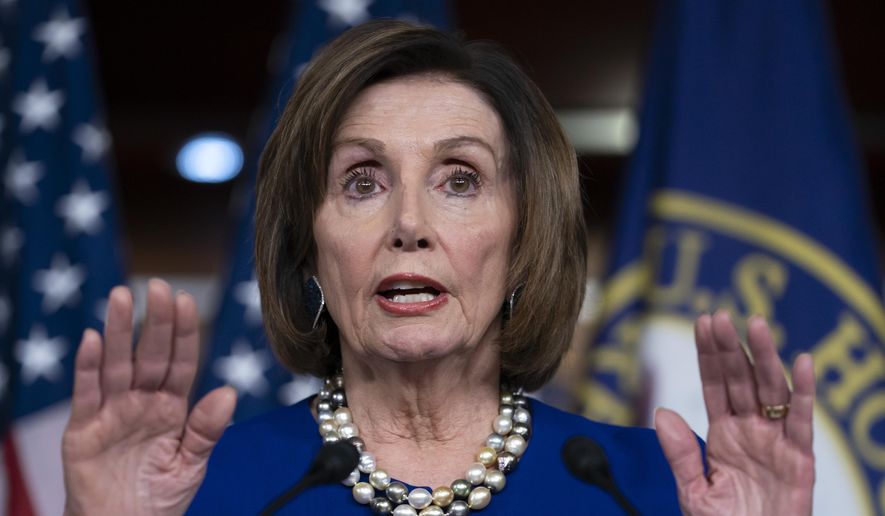House Speaker Nancy Pelosi urged her Democratic colleagues to lobby the Federal Reserve to make nonprofits better eligible for coronavirus-related relief ahead of a Thursday deadline for input for the Fed.
“I urge you to lift up this issue and encourage nonprofits and universities in your district to make their voices heard by submitting feedback to the Federal Reserve through its online resource,” Mrs. Pelosi wrote in a letter to fellow Democrats.
The Coronavirus Aid, Relief, and Economic Security Act (CARES) put the Federal Reserve in charge of a Main Street Lending Program that makes loans to small and mid-sized businesses. Mrs. Pelosi told her fellow lawmakers that the Fed and President Trump’s administration were excluding nonprofits, universities and minority-serving institutions from its existing loan options.
Nonprofits are eligible for other relief provisions of the CARES Act, though not yet through the Main Street Lending Program.
The California Democrat labeled the Fed’s anticipated action excluding nonprofits a “significant blow” because such nonprofits could not participate in the two lending options offered — new loans of $1 million to $25 million, or the expansion of a small business’ bank-provided loan up to a $150 million limit.
Mrs. Pelosi and nonprofits of differing political agendas are unlikely allies in their pursuit of CARES Act lending eligibility, although they may find a more fruitful remedy in future legislation to build upon the CARES Act.
The Napa Legal Institute, which provides nonlitigation legal counsel to Catholic nonprofits, said Thursday that the network of nonprofits it works with would benefit from the Federal Reserve extending loan eligibility to nonprofits.
“As a matter of equal access, extending this eligibility would be favorable for certain nonprofits, especially those who provide vital goods and services,” said Joshua Holdenried, Napa Legal Institute executive director, in an email. “With that said, the category of ’nonprofit’ includes a broad class of organizations with very diverse needs and funding models.”
Mr. Holdenried said the Main Street Lending Program’s aim will not meet the needs of all small nonprofits, and he said religious nonprofits must determine whether federal assistance either jeopardizes or enhances their individual missions.
Some nonprofits have already begun organizing to ensure lawmakers’ next coronavirus-relief package explicitly benefits the nonprofit sector.
More than 200 national nonprofits wrote to Mrs. Pelosi and Senate Majority Leader Mitch McConnell last week and asked Congress to explicitly include a “Nonprofit Track” in any CARES Act 2.0 proposals.
Among the groups pushing Congress for greater relief for the nonprofit sector are the American Cancer Society, American Heart Association, Goodwill Industries International, Habitat for Humanity International, and the United Way Worldwide among many others.
“United Ways and our fellow nonprofits directly support healthcare workers, the unemployed, and students struggling to learn from home, and many more who represent the faces and frontlines of this crisis,” said Brian Gallagher, United Way Worldwide CEO, in a statement last week. “Without greater support, society’s most vulnerable — from the homeless to senior citizens — will suffer and the effects of the pandemic will be exacerbated.”
• Ryan Lovelace can be reached at rlovelace@washingtontimes.com.




Please read our comment policy before commenting.